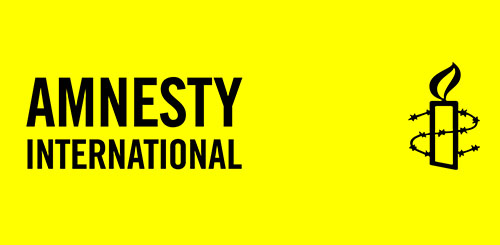Amnesty International is deeply concerned by recent backlash against lesbian, gay, bisexual, transgender and intersex (LGBTI) people in Malaysia by several politicians, including the Minister of Religious Affairs, as well as threats against a prominent LGBTI activist. Amnesty International calls on the new government to condemn recent attacks against LGBTI people in Malaysia, adopt policies to protect LGBTI people from discrimination and ensure full enjoyment of their rights.
Last week, Minister for Religious Affairs Datuk Mujahid Yusof Rawa said that even though he has pledged to listen to the views of LGBTI people in the country, this should not be construed as overt support for LGBTI people.
A member of Parti Islam Se-Malaysia (PAS), a conservative opposition party, then said that LGBTI people “infringe on society’s rights and the norms of humanity”, while the Deputy Head of Government in Kelantan State stated that “gays and lesbians” are “bigger issues” for the country, compared to a recent case of child marriage that was widely condemned both domestically and abroad.
In recent days, LGBTI activist Numan Afifi, who had worked as an aide to the new Minister of Youth and Sports, said that backlash and threats he has received from religious conservatives for his activism have made it impossible for him to exercise his duties. Numan is known for his work as the President of LGBT group Pelangi Campaign (‘Rainbow Campaign’) which also organised a Pride day event in conjunction with Pride month in 2017.
Malaysia has a troubling track record of discrimination and abuse against LGBTI people, who have faced prejudice and backlash from conservative movements, religious authorities and the government over many years. Amnesty International is concerned that this latest wave of homophobia and transphobia will result in further human rights abuses against LGBTI people in the country.
Amnesty International reminds the new government that in their election manifesto, they committed to enhancing diversity and inclusiveness at all levels of society. In line with this promise, Amnesty International is calling for the Malaysian authorities to take appropriate steps to protect the rights and safety of LGBTI people. The government must take action to prevent threats or attacks against LGBTI individuals. If such attacks take place, they should be investigated and those responsible should be brought to justice.
Prior to the 14th General Elections, Amnesty International published an 8-Point Human Rights Agenda for the new government which called for the protection of the rights of LGBTI people in Malaysia. Amnesty International is renewing its call to the government to abolish federal and state laws which are used to criminalise LGBTI people, as well as to ensure the authorities do not violate the rights of LGBTI people through arbitrary arrests, detention, violence, ill-treatment, violations of privacy, and discrimination. The authorities must commit to ensuring that everyone in Malaysia is able to exercise their rights, regardless of their sexual orientation, gender identity or sex characteristics.
Background
The government of Malaysia has a track record of abuses against transgender people. In 2014, officials from the Negeri Sembilan State Islamic Department carried out a raid on a wedding party held in a private home. Those arrested were subsequently charged in a Shari’a Court for violating the state’s Shari’a Law on ‘cross dressing’. In April 2016, the Federal Territories Islamic Department (JAWI) carried out a raid on a transgender beauty pageant, and charged human rights lawyer Siti Kasim, who was present at the event, with ‘obstructing a public servant’ when she protested.
In June 2017, the Ministry of Health received local and international criticism for its decision to launch a video competition for teenagers on how to “prevent gender confusion” – an initiative which promoted harmful gender stereotypes and stigma against LGBTI people.
Despite the aforementioned cases, in February 2018, a Malaysian representative told the UN Committee on the Elimination of Discrimination against Women that LGBTI people in Malaysia are treated equally – a statement that Amnesty International strongly refutes.






















